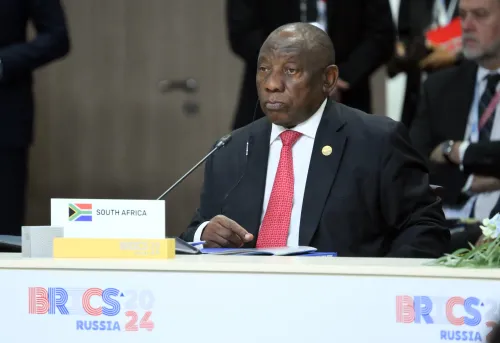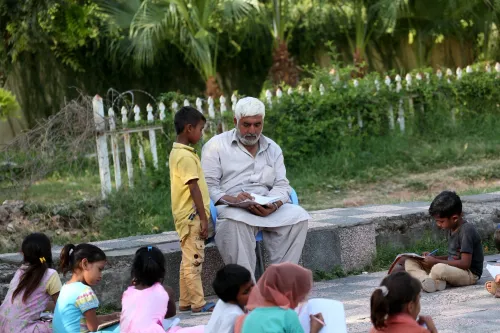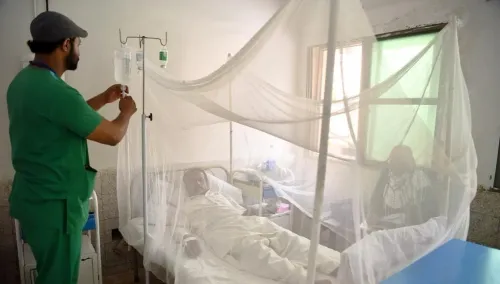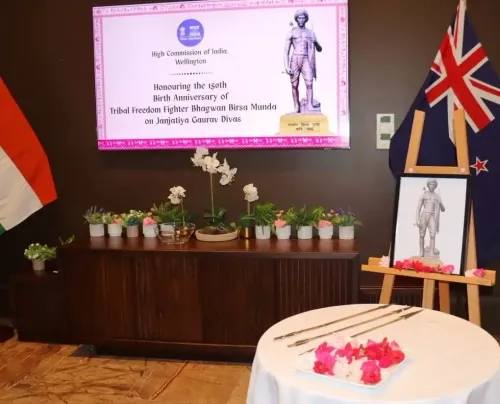Escalating Violence in Eastern Congo Poses Risks to Civilians and Humanitarian Workers: UN
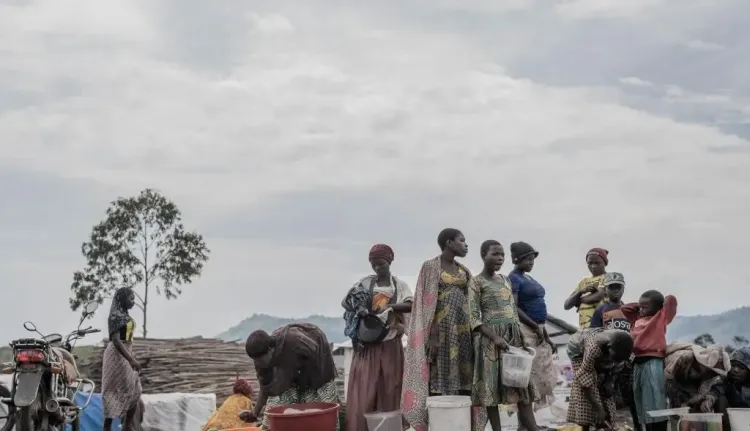
Synopsis
Key Takeaways
- Surge in violence in eastern DRC raises alarm.
- Over 16,000 people displaced in Ituri province.
- UNHCR calls for refugee protection for fleeing Congolese.
- Many displaced individuals remain in precarious conditions.
- M23 rebels continue to control parts of Goma, restricting access.
United Nations, March 5 (NationPress) The rise in violence across the three easternmost provinces of the Democratic Republic of the Congo (DRC) is causing significant alarm for civilians, including humanitarian personnel, according to a UN humanitarian official.
Bruno Lemarquis, the UN’s resident humanitarian coordinator for the DRC, expressed concern regarding the recent surge in targeted attacks against civilians, relief workers, and essential infrastructure in the provinces of Ituri, North Kivu, and South Kivu.
Lemarquis stated that the assaults, which have included the kidnapping of numerous patients from two hospitals, constitute grave breaches of international humanitarian and human rights laws. Such actions jeopardize relief operations that support millions of civilians.
Reports from local authorities in Ituri province indicate that over 16,000 individuals have fled from clashes in the Djugu territory since Thursday. The region has experienced a rise in confrontations and assaults by armed factions, leading to civilian injuries and displacements.
Stephane Dujarric, spokesperson for UN Secretary-General Antonio Guterres, mentioned that the United Nations High Commissioner for Refugees (UNHCR) has released a new report concerning displaced individuals returning to eastern DRC.
“They report that Congolese nationals escaping the conflict, along with those from abroad who hail from the conflict-affected regions, might require refugee protections under both international and regional legal standards,” said Dujarric. “Nearly 80,000 men, women, and children have crossed into neighboring countries, with around 61,000 arriving in Burundi since January.”
The UNHCR reported that approximately 17,000 individuals around the capital of Goma remain in displacement sites, schools, and churches, while 414,000 people have been on the move for the past month, with de facto authorities encouraging them to return to their original villages.
The agency noted that at least 209,000 individuals from these sites have spontaneously arrived in the territories of Masisi, Nyiragongo, and Rutshuru, where local facilities are unprepared for the sudden influx. Given the widespread insecurity in these provinces and adjacent areas, many more individuals may need to cross borders seeking safety and assistance, as reported by Xinhua news agency.
The UNHCR urged neighboring nations to register all asylum seekers from the DRC and provide them with necessary documentation.
The spokesperson indicated that UN peacekeepers have reported that the situation around Goma remains precarious. The M23 rebels, who seized control of Goma over a month ago, continue to solidify their hold on the city with checkpoints and patrols.
“Our colleagues report that this situation continues to hinder the peacekeepers' ability to move freely and access the airport in Goma,” Dujarric noted.
In Ituri, a patrol was dispatched to Pimbo in the Djugu territory following an attack by the CODECO armed group in the region.
Additionally, the UN mission in the DRC, known as MONUSCO, deployed a peacekeeping patrol to Matate, northeast of the provincial capital of Bunia, in response to an attack by suspected members of the Zaire militia, which led to the deaths of two civilians and left one injured.

